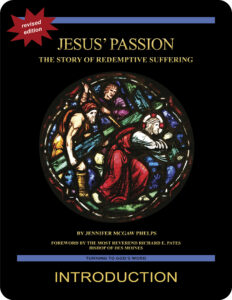partiality
 The Acts of the Apostles 10:34–38 (NABRE), included in liturgical celebrations of the Baptism of the Lord, shows us that God is concerned about Jews and Greeks alike. In the Acts of the Apostles 10:34 (NABRE), Peter says: “In truth, I see that God shows no partiality.” The Greek word here translated as partiality appears only once in the New Testament and is open to a fairly broad range of possible meaning. The King James Version translates the same word as “respecter of persons.” The Greek word in question, προσωπολήμπτης (prosopolemptes), comes from two parts, one meaning “face” and the other meaning “to take in or perceive.” While there are a lot of ways to try to interpret what’s going on here, the text seems to be telling us that God is not one who takes people at face value.
The Acts of the Apostles 10:34–38 (NABRE), included in liturgical celebrations of the Baptism of the Lord, shows us that God is concerned about Jews and Greeks alike. In the Acts of the Apostles 10:34 (NABRE), Peter says: “In truth, I see that God shows no partiality.” The Greek word here translated as partiality appears only once in the New Testament and is open to a fairly broad range of possible meaning. The King James Version translates the same word as “respecter of persons.” The Greek word in question, προσωπολήμπτης (prosopolemptes), comes from two parts, one meaning “face” and the other meaning “to take in or perceive.” While there are a lot of ways to try to interpret what’s going on here, the text seems to be telling us that God is not one who takes people at face value.
Within the context of this passage there is a clear racial implication here with the suggestion that Jesus was sent to all nations. But is Jewishness something that’s only superficial and doesn’t show up if you look deeper into the heart of someone? By not seeing people’s faces, God is not concerned about race or ethnicity, but that may not necessarily mean he’s indifferent to people’s religious beliefs or practice. The suggestion seems to be that Jewishness or belonging to the people of God is not a matter of race or ethnicity but a matter of choice and behavior, and it’s on that basis that God will judge.
you also may like our free Lenten study of Jesus’ Passion (digital only)
 Jesus’ Passion: The Story of Redemptive Suffering is a five-lesson Catholic Bible study offering an in-depth look at the biblical foundations of the movie The Passion of the Christ. This revised study, which has been granted an imprimatur, contains all of the original material of the 2004 edition as well as many new features in an improved, reader-friendly format. Click on the book’s cover to view the introduction. Free digital lessons of Jesus’ Passion: The Story of Redemptive Suffering are available on the website during Lent.
Jesus’ Passion: The Story of Redemptive Suffering is a five-lesson Catholic Bible study offering an in-depth look at the biblical foundations of the movie The Passion of the Christ. This revised study, which has been granted an imprimatur, contains all of the original material of the 2004 edition as well as many new features in an improved, reader-friendly format. Click on the book’s cover to view the introduction. Free digital lessons of Jesus’ Passion: The Story of Redemptive Suffering are available on the website during Lent.
 Click on the picture of the statue of Moses with horns (above) to learn more about Lost in Translation. A new entry is archived each Monday. Contact us to receive Lost in Translation by email every week. You may use any of the contact links on our website to ask Matthew a question.
Click on the picture of the statue of Moses with horns (above) to learn more about Lost in Translation. A new entry is archived each Monday. Contact us to receive Lost in Translation by email every week. You may use any of the contact links on our website to ask Matthew a question.
